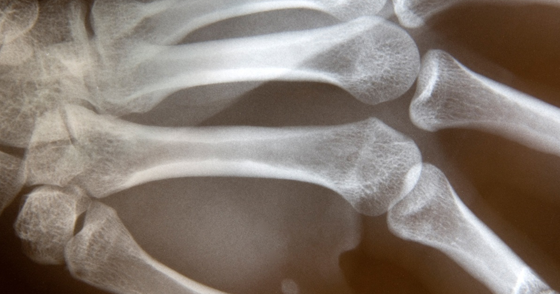Conventional NSAIDs and coxibs differ in their risk profile and tolerability, which is particularly important to consider in high-risk patients. But how to proceed? HAUSARZT PRAXIS in conversation with four representatives from the involved specialties of cardiology, gastroenterology, hemostaseology and general internal medicine.
All NSAIDs, not just coxibs, have an increased cardiovascular risk; in contrast, coxibs perform significantly better than conventional NSAIDs in GI tolerability. How do you assess the safety and tolerability of conventional NSAIDs and coxibs?
Prof. Ruschitzka: When the COX-2 inhibitors came on the market, people wondered whether the coxibs had an increased risk and whether this also applied to the NSAIDs. Before that, NSAIDs sort of flew under the radar and weren’t studied more closely in that regard. The coxibs had to answer questions that the conventional or unselective NSAIDs had never been asked. And over the last decade, NSAIDs have been shown to have essentially the same cardiovascular risk profile as coxibs. An outlier may have been the high dose of Vioxx of 50 mg.
Prof. Korte: Substance-specific considerations must be taken into account; in particular, the different degrees of inhibition of COX-1 and COX-2. In general, the conventional NSAIDs and coxibs available on the market can be assessed as safe, taking into account the indications and warnings.
PD Dr. Vavricka: In general, gastrointestinal complications, including potentially fatal ulcers and bleeding, occur about five times more frequently than adverse cardiovascular events. Cardiovascular risk is mainly discussed in the context of COX-2-specific NSAIDs and generally studied. The risk of cardiovascular events is approximately the same for all NSAIDs and should be considered, especially in high-risk patients. In terms of incidence of gastrointestinal complications, coxibs fared better than conventional NSAIDs.
Dr. Widler: Both are safe, tolerable and effective. It is important to identify patients at risk and weigh the risk against the benefit.
Should paracetamol still be used at all?
Prof. Korte: Absolutely, especially for simple febrile infections and for simple analgesia.
Dr. Widler: Yes, but knowing that paracetamol is often not analgesic enough.
PD Dr. Vavricka: From a gastroenterological point of view, paracetamol remains the first-choice analgesic.
Prof. Ruschitzka: Every drug can potentially have side effects, and the respective risk-benefit ratio must be weighed for all drugs, including painkillers. Paracetamol can cause acute liver failure and acute toxic liver injury, which can lead to transplantation. However, not treating the pain is not a solution either. We did a study two years ago that was the first to look at 3 g of acetaminophen in patients with coronary artery disease. Blood pressure was found to increase, as with the other NSAIDs. This means only the following: Paracetamol is either just as good or just as bad as the other NSAIDs.
What must be taken into account in the pain therapy of high-risk patients – e.g. in the treatment of osteoarthritis – when using NSAIDs incl. NSAIDs? Coxiben pay special attention?
Prof. Korte: The basic cardiovascular risk should be considered and treated if necessary. The possibility of worsening renal function must be considered, especially if renally eliminated drugs are given in parallel.
PD Dr. Vavricka: With this question, one has to distinguish between high-risk patients with gastrointestinal risk and high-risk patients with cardiovascular risk on the one hand. Patients at very high gastrointestinal and cardiovascular risk should avoid taking NSAIDs or COX-2 inhibitors if possible. For high gastrointestinal risk, either NSAIDs should be used in combination with a proton pump inhibitor or a COX-2 inhibitor, and for very high gastrointestinal risk, COX-2 inhibitors should be used in combination with a proton pump inhibitor.
Prof. Ruschitzka: All analgesics have a cardiovascular risk, but this is acceptable to a certain extent. I think we need to focus on cardiovascular risk and gastrointestinal tolerability. The key here is to find the right balance between cardiovascular and gastrointestinal safety, but also effectiveness.
Dr. Widler: It is important to pay special attention to kidney function. Blood pressure and body weight should be checked regularly, initially and at short intervals. Incidentally, it is particularly useful to administer a proton pump inhibitor in elderly patients in reduced general condition.
Caution should be exercised when using NSAIDs with low-dose aspirin. But who is actually bothering whom: the aspirin the NSAIDs or the NSAIDs the aspirin?
Prof. Korte: This depends on which clinical effects are desired in the particular situation. When combined treatment focuses on platelet aggregation inhibition, the side effects of NSAIDs “interfere” more. On the other hand, if analgesia is important in inflammatory situation, ASA “interferes” more.
Prof. Ruschitzka: That’s a good question, because we don’t know yet who is disturbing whom. If ibuprofen or naproxen are taken at the same time as aspirin, the latter does not work equally well. We certainly don’t want that for our coronary patients and patients after coronary intervention.
What might a simple form of risk profiling look like for practitioners?
Dr. Widler: Of course, the medical history is important: What about ulcers, hypertension, hypertensive heart disease, renal insufficiency? How well tolerated is the preparation?
Prof. Korte: Furthermore, the most important goal should be prioritized and, as already mentioned by Dr. Widler, the choice of medication should be adjusted taking into account potential side effects.
PD Dr. Vavricka: Risk factors for gastrointestinal complications include age >65 years, history of ulcer or gastrointestinal complications, high dose of NSAIDs, combination of NSAIDs with other coxibs or nonsteroidal anti-inflammatory drugs, combination with glucocorticoids, anticoagulants, aspirin or antidepressants, and severe concomitant diseases. If no such risk factors are present, an NSAID can be used alone.
If the risk is moderate and one to two such risk factors are present, either COX-2 inhibitors alone or NSAIDs in combination with proton pump inhibitors can be given.
If more than two risk factors are present, only a COX-2 inhibitor should be used, possibly in combination with proton pump inhibitors.
Prof. Ruschitzka: The cardiovascular risk can be calculated with the AGLA score or the risk score of the European Society of Cardiology, which is quite simple. But what do we do with the result? Practically, one thing to remember is that patients often don’t take the drug every day, they have a relapse, and then they don’t take it again for a few weeks. Presumably, the risk is thus lower than in patients who chronically take painkillers every day for several years.
How do NSAIDs differ with respect to renal function?
PD Dr. Vavricka: The incidence of arterial hypertension is higher with etoricoxib than with celecoxib. It is important to note that all antiphlogistic agents can potentially interfere with antihypertensive medications. Etoricoxib is contraindicated in Europe in inadequately controlled hypertension with blood pressure persistently elevated above 140/ 90 mmHg.*
Prof. Ruschitzka: There is a lot of conjecture in this, we don’t have any head-to-head studies here, so we have to be careful here. It is important to remember that both NSAIDs and coxibs are COX-2 inhibitors. However, the classic NSAIDs Voltaren and Naproxen additionally inhibit COX-1, which the coxibs do not.
Do both treatment strategies-conventional NSAIDs plus PPI as well as coxibe-have an equivalent GI safety profile?
Dr. Vavricka: No. This was clearly demonstrated, in particular, in the CONDOR study published in the Lancet in 2010. In this study, gastrointestinal side effects were investigated in both the upper and lower gastrointestinal tracts. The two treatment strategies were diclofenac in combination with omeprazole vs. celecoxib. The data showed that there were significantly more gastrointestinal side effects throughout the gastrointestinal tract in the combination therapy conventional NSAIDs plus PPI compared with COX-2 inhibitors over a 210-day period.
After all, lesions in the lower digestive tract often lead to chronic iron deficiency. Can anemia be used to identify bleeding in the lower gastrointestinal tract?
Prof. Korte: Of course, it is not possible to make a reliable assessment. However, the occurrence of anemia over time during treatment with NSAIDs must make one think of GI bleeding, especially if additional iron deficiency develops.
PD Dr. Vavricka: If these lesions occur in the colon, they can be visualized by colonoscopy. However, lesions in the small intestine, distal to Treitz’s ligament, are problematic because they can only be detected by capsule endoscopy and then cannot be well addressed therapeutically.
From a hemostaseology perspective, what should be considered regarding the use of NSAIDs in high-risk patients?
Prof. Korte: Any COX inhibition is associated with the possibility of relevant thrombocytopathy. This becomes particularly important with concomitant administration of (renally eliminated) anticoagulants, as NSAIDs can affect renal function relatively rapidly.
Prof. Ruschitzka: All drugs potentially interact with each other. You see that, of course, in the gastrointestinal bleeding risk, which increases. The bleeding profile worsens when you give patients unselective COX inhibitors, i.e., NSAIDs. But even a coxib is not completely free of gastrointestinal side effects, it’s just less pronounced than NSAIDs.
Should NSAIDs be discontinued for coagulation reasons before elective surgery?
Prof. Korte: Here, the type of surgery and the reason for using the medication are crucial. If normal platelet function must be obtained during surgery because there is a high risk of bleeding, then NSAIDs should be discontinued five to seven days beforehand, if possible. With coxiben, it comes down to inhibition of the various enzymes. If the inhibition is not COX-2 specific and the situation is as described earlier, then discontinuation should also be considered.
PD Dr. Vavricka: In gastroenterological procedures such as polypectomy or PEG insertion, coxibs and NSAIDs are generally required to be discontinued for at least seven days.
Interview: Séverine Bonini and Lena Geltenbort











